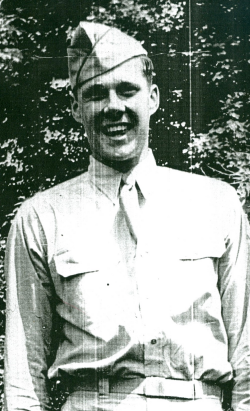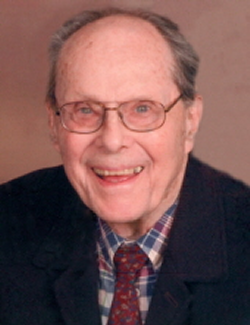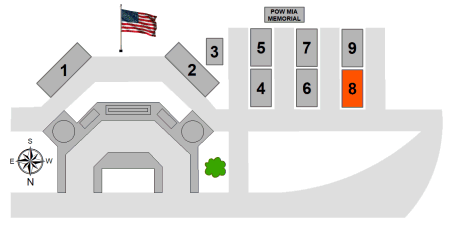John E Grant
PFC US Army
1943-1946 WWII


John Ernest Grant (“Jack”), born on August 28, 1925 to Albert M. and Christine (Currier) Grant of Amesbury, MA, died in Iowa City, IA on November 23, 2020, leaving his wife Mary Lynn (Johnson), son Will, older sons Mike (“Louie”) and Ken, grandsons Steven and Miles, brother Alan, sister Julie, and others.
Drafted in April 1943, Jack served in the “Flash” section of the 291st Field Artillery Observation Battalion (F.A.O.B.), Battery B., in the campaigns of Rhineland, Ardennes, and Central Europe. F.A.O.B. batteries located enemy artillery by coordinating flash spotting and sound ranging from a precisely plotted array of observation posts, enabling one or more artillery units to direct fire at a single target. In October 1944 the 291st landed unopposed on Omaha Beach; when specialized equipment arrived in November they moved to Cherbourg, then Argueil, France; and Aachen, Germany. After meeting the 8th F.A.O.B. in the Huertgen Forest, to learn from their combat experience, they took over Sound and Flash posts in Lammersdorf, Belgium, set up by the 285th F.A.O.B. (massacred in Malmedy, Dec. 17). Between March and May 1945, the 291st found targets along the Elbe River, then shifted to the Fulda Gap to patrol an actively contested border between U.S. and Russian occupied territory.
Jack’s lifelong interest in literature and art was nurtured by Armed Service Editions, paperbacks made to fit into field uniform pockets (he saved his favorites for the rest of his life), and by seeing the bust of Egyptian Queen Nefertiti as the Monuments Men were transporting it to Wiesbaden, from where they had discovered it hidden in a salt mine near Heilbronn. After V-E Day, while awaiting space on a ship back to the U.S., Jack competed for admission to the temporary Shrivenham American University, near Swindon, England, staffed by distinguished U.S. professors, including many civilians. He and three others from the 291st headed for Shrivenham in Oct. 1945, and when the school closed in Dec. 1945, they returned to their outfit, then serving Occupation duty in Heidelberg, Germany. In mid-April Jack qualified for a homebound spot, left on a troop ship that arrived in Boston Harbor on Apr. 24, and was honorably discharged on Apr. 29, 1946.
On the G.I. Bill, Jack earned additional credits at B.U. General College and Hamilton College, then completed his degrees from Harvard (A.B.,1951; A.M., 1954; Ph.D., 1960). After nine years on the faculty of the University of Connecticut (1956-65) he became Professor of English at the University of Iowa (1965-1992), where much of his work concerned the verbal and visual art of William Blake (1757-1827). From the late 1960s on, he was vigorously engaged in local and sometimes national anti-war protests and human rights demonstrations. He donated his remains to the University of Iowa’s Deeded Body Program.
Locator
